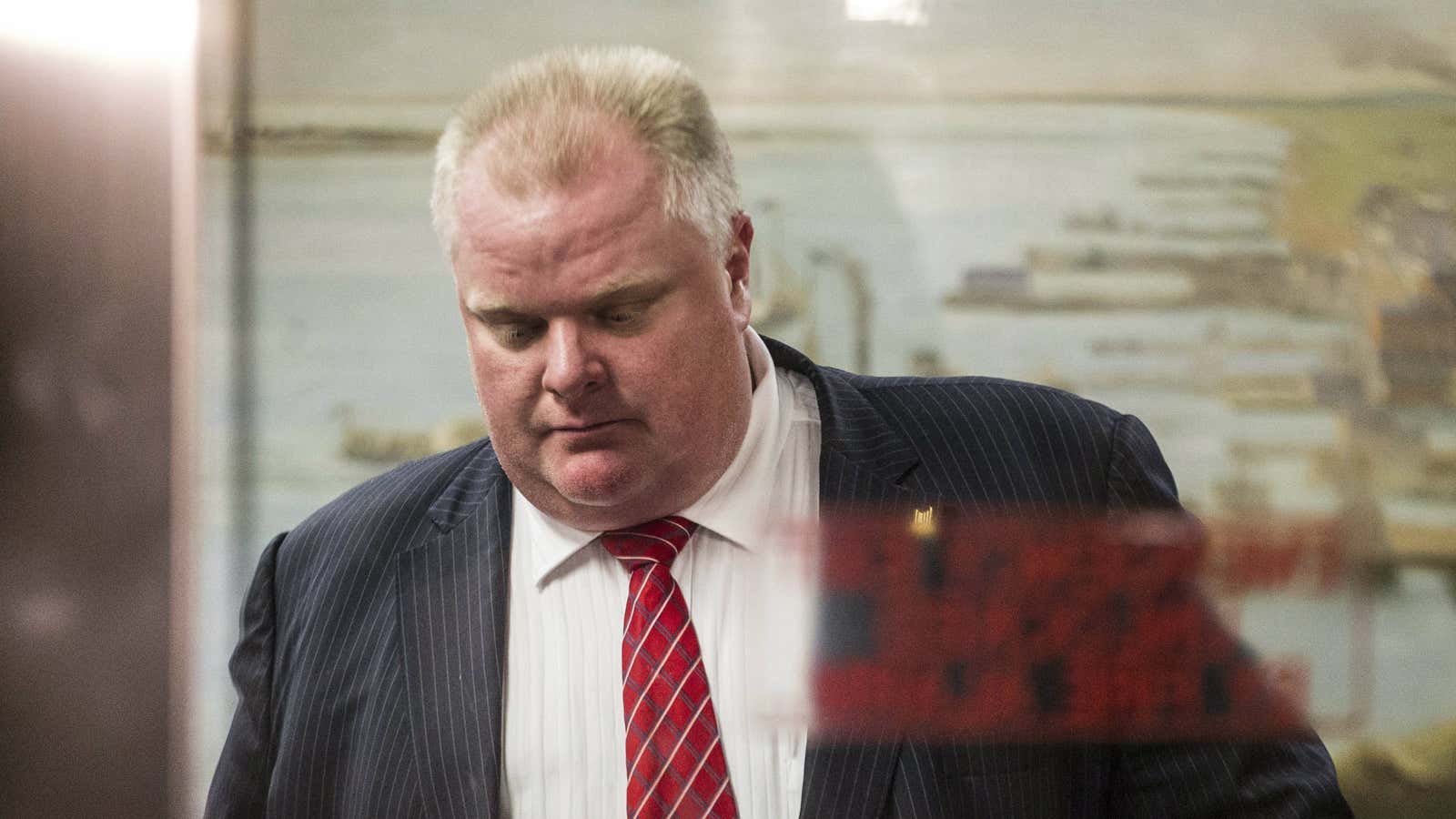At first glance, Donald Trump and the recently deceased ex-Toronto mayor Rob Ford had a lot in common: Political outsiders with aggressive public personas and a fondness for race-baiting and misogyny, who disregarded the norms of political behavior, but found substantial success thanks to a rabid fan base.
“Typically Canadian politics is very polite,” says Peter Landry, managing partner at government relations firm Enterprise Canada. “If you would’ve told me that the largest city in Canada would elect a man that accomplished so little, and said derogatory comments about women and race, I would have told you you were crazy.”
But aside from the bluster and bullying, Ford and Trump—the US Republican presidential frontrunner—were and are very different politicians.
“I think Rob Ford and Donald Trump are differently motivated, even if the product they’re selling looks the same and tastes the same. [Rob Ford] fully believed and was committed to serving the public in a way that he understood,” explains Taylor. “I think Trump is an opportunist that is strategically deploying the type of language he does to take the low road to political advantage.”
Ford died from an aggressive form of cancer, after a scandal-plagued tenure that included a trip to rehab and a cellphone video showed him smoking crack cocaine. (Trump, meanwhile, is a teetotaler).
Both men were born to wealth: Trump is the scion of a New York real-estate fortune, and Ford’s family owns a prosperous sticker and label maker and has substantial real estate holdings in Florida and throughout Canada.
But while Trump goes to extremes to flaunt his money, Ford tried to portray himself as a middle-class average Joe. And his public struggles with addiction became part of his appeal to the supporters who never deserted him.
For many of Ford’s supporters, his numerous improprieties weren’t dealbreakers, but transgressions that could be forgiven.
“He was in many ways a real guy and it was aspirational for many people,” says Landry. “He could screw up and keep trying to be better – it was a real-life redemption story.”
Ford “was somewhat of a bully, abusive, he consorted with unsavory people,” says Zack Taylor, an assistant professor at Western University. “It’s astonishing that he got away with it and a substantial portion was willing to forgive him.”
As a politician, Ford campaigned on his efforts to “stop the gravy train” by reducing public spending. But he also made serving his constituents—first as a city councilman, and then as mayor—a core part of his political identity, personally calling back constituents who sought out his help for simple problems like roadside potholes or streetlights.
“He really felt for people who couldn’t get the help they needed. Dealing with government can be not only scary, but frustrating, as we’ve all experienced at one time or another,” says Dan Jacobs, Rob Ford’s chief of staff about his appeal. “He believed elected officials owed their constituents answers, and an ability to get solutions to their issues.”
Ford pre-wrote his own obituary while talking to reporters in 2014, after he won a city council seat while undergoing cancer treatments. Asked about his tenure as mayor, he may as well have been summing up his political career:
“It will definitely be remembered, put it that way,” Ford said, laughing. “No one’s going to forget it.”
No matter how the 2016 election plays out, the same will definitely be true for Donald Trump.
